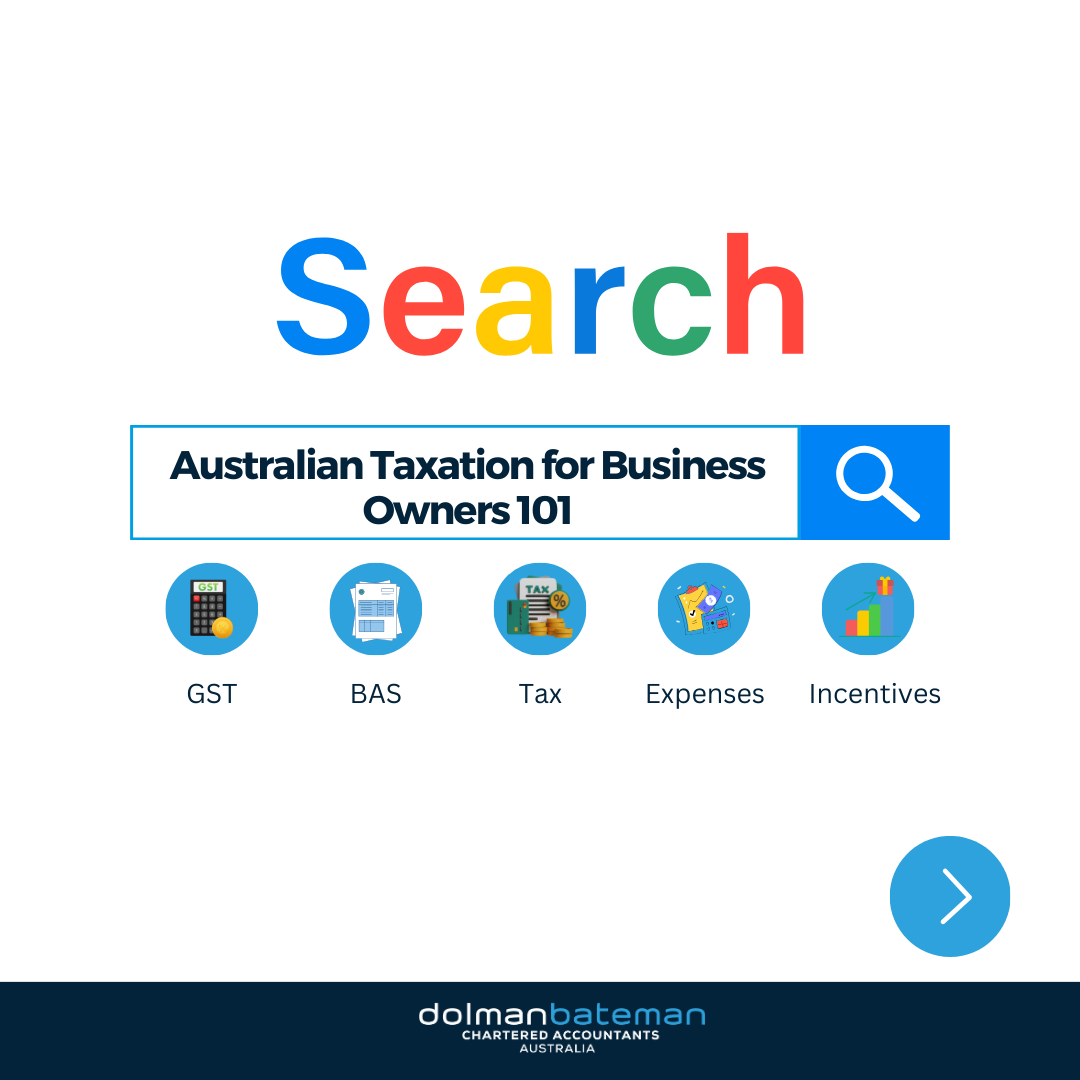FAQs: Australian Tax 101 for Business Owners
- Arnold Shields

- Oct 18, 2023
- 3 min read
Updated: May 14, 2025

Taxation is an unavoidable part of running a business in Australia. While it can be complex, understanding your obligations puts you in control and helps you avoid costly mistakes. Below is a practical guide to the key areas of business taxation in Australia.
What is the Goods and Services Tax (GST)?
The Goods and Services Tax (GST) is a 10% tax on most goods and services sold in Australia. You must register for GST if your business has an annual turnover of $75,000 or more (or $150,000 for non-profits). Voluntary registration is available if you're under the threshold and can offer advantages like claiming input tax credits on business purchases.
Business Activity Statements (BAS): How Often Must You Lodge?
The BAS is used to report GST, PAYG withholding, and income tax instalments. Your lodgment frequency depends on turnover:
Quarterly: Businesses under $20 million
Monthly: Businesses over $20 million
Annually: Small businesses under $75,000 (optional)
Staying on top of your BAS ensures compliance and helps avoid ATO penalties.
Calculating and Paying Income Tax
As a business owner, you’ll pay income tax via:
PAYG instalments: Regular, expected payments throughout the year
Annual tax return: Final reconciliation based on actual income and deductions
A good accountant can help you avoid underpaying or overpaying by forecasting accurately.
What Records Should You Keep?
Record-keeping is not optional — it’s essential. You should maintain:
Invoices and receipts
Bank statements
Employee payroll records
BAS and tax returns
Keep these records for at least five years, as the ATO can audit within this timeframe.
How to Reduce Your Audit Risk
To stay off the ATO’s radar:
Lodge BAS and tax returns on time
Maintain accurate, complete records
Seek advice from a registered accountant
Avoid inflating deductions or underreporting income
Being transparent and organised helps build trust with the ATO.
Can You Claim Home Office Expenses?
Yes, home office expenses can be claimed if you operate from home. Deductions may include:
Electricity and internet
Depreciation of office equipment
Phone and stationery
You must meet strict eligibility criteria, so professional advice is recommended to get it right.
Tax Deductions and Incentives for Small Businesses
The ATO offers generous tax concessions for small businesses, including:
Instant asset write-off (up to the current threshold)
Simplified depreciation rules
Lower corporate tax rates
Prepaid expense deductions
These incentives are designed to reduce the tax burden and boost cash flow. Work with a tax expert to ensure you're taking full advantage.
Final Thoughts
The Australian tax system may seem overwhelming, but with the right knowledge and expert support, it becomes manageable. Focus on:
Registering for GST on time
Meeting BAS deadlines
Keeping accurate records
Claiming all eligible deductions
Seeking professional advice regularly
Staying compliant and proactive with your business tax obligations sets you up for long-term financial health. Reach out to Dolman Bateman if you'd like tailored advice for your situation, we're here to help you make smarter business decisions.
Disclaimer:
The information provided in this article is general in nature and does not constitute personal financial, legal or tax advice. While every effort has been made to ensure the accuracy of this content at the time of publication, tax laws and regulations may change, and individual circumstances vary. Dolman Bateman accepts no responsibility or liability for any loss or damage incurred as a result of acting on or relying upon any of the information contained herein. You should seek professional advice tailored to your specific situation before making any financial or tax decision.



